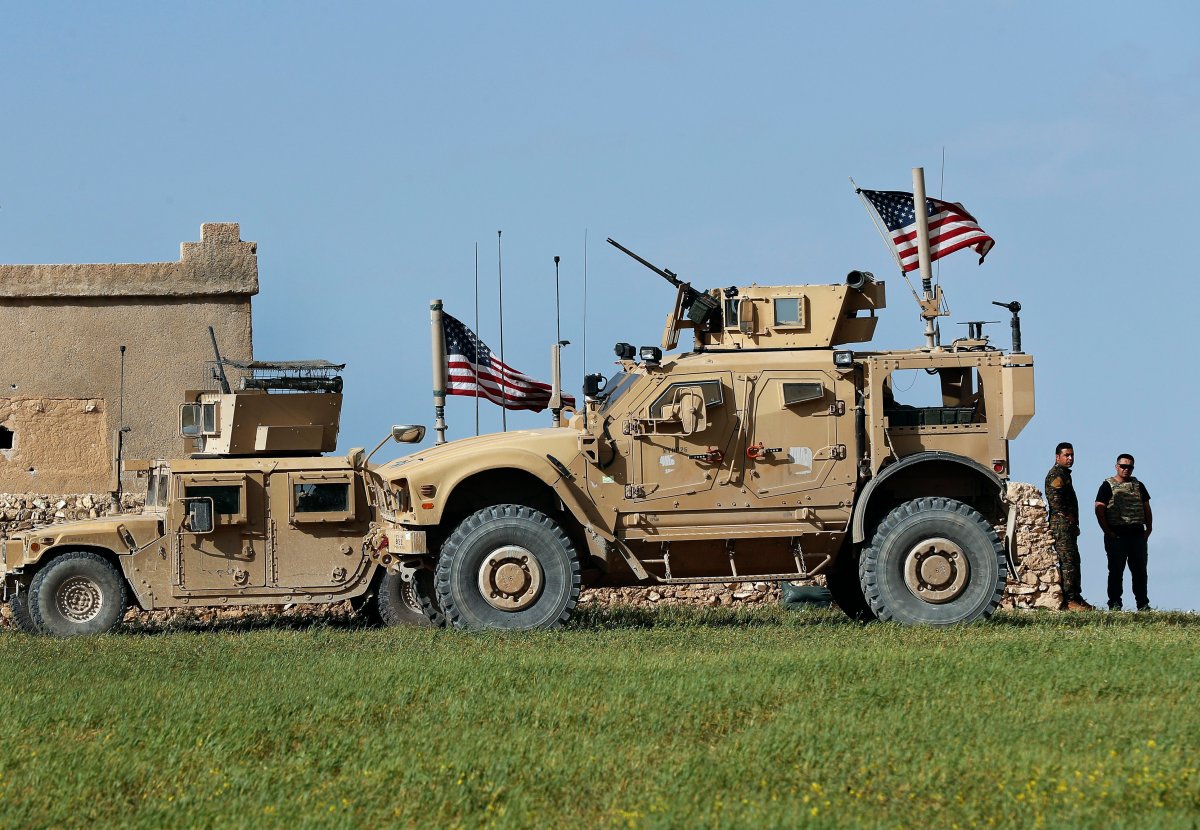A U.S. defence official says one of the two troops with the U.S.-led coalition who were killed in a roadside bomb attack in Syria was an American.

The official, who spoke on condition of anonymity because detailsh ad not yet been publicly released, did not give the nationality of the second military member.
READ MORE: Harrowing images show 10 days of devastation after bombings, airstrikes in Syria
Earlier Friday, the U.S. military said two coalition personnel were killed and five others wounded by a roadside bomb in Syria without specifying where exactly the attack occurred.
The U.S. official said there was no information about the American was immediately available.
The military did not say where the incident occurred but it came hours after a local Syrian official said that a roadside bomb exploded in the tense, mixed Arab-Kurdish town of Manbij that is not far from the border with Turkey.
Manbij is under threat of a Turkish military operation. Ankara says Syrian Kurdish militiamen it views as “terrorists” and an extension of Kurdish insurgents inside Turkey is in control of the town.
WATCH: On seventh year of Syrian conflict, new humanitarian crisis emerges in Ghouta

The U.S. military statement said the attack happened Thursday night and that the wounded were being evacuated for further medical treatment. The statement said details were being withheld pending further investigation.
U.S. military spokesman Col. Ryan Dillon couldn’t immediately say who was behind the attack.
“There is an investigation under way to identify who they could possibly be. We have our initial assessment and thoughts on that but we won’t provide until the investigation is complete,” he said.
Dillon refused to give the nationalities of the dead and wounded as well as the location of the attack until next of kin notification.
Dillon said the coalition has had fatalities in Syria before. “Perhaps by different means but there have been coalition deaths in Syria over the course of three years.”
Mohammed Abu Adel, head of the Manbij Military Council, an Arab-Kurdish group in the town backed by the U.S., said the bomb went off hundreds of meters (yards) from a security headquarters that houses the council just before midnight on Thursday.
Earlier on Friday, Dillon said an incident involving coalition forces was reported in Manbij but said no more information was available.
The town has seen a number of small explosions, protests and an assassination attempt on a member of the Manbij military council in recent weeks. Local officials blame Turkey and other adversaries for seeking to sow chaos in the town that was controlled by Islamic State group militants until the summer of 2016.
WATCH: Following one family’s journey from Syria to Canada

The military council has since been in control and U.S. troops patrol the town and area with troops based nearby.
Meanwhile, near the capital Damascus, there were conflicting reports on whether the main rebel group will evacuate the largest and last rebel-held town in the area, known as eastern Ghouta.
Col. Gen. Sergei Rudskoi of the Russian military’s General Staff said at a Friday briefing that the agreement envisages Army of Islam rebels and their families leaving the Syrian town of Douma, just outside of Damascus.
The announcement came after the Syrian government on Wednesday issued a three-day ultimatum to the Army of Islam group to leave Douma or face an all-out offensive.
- What is a halal mortgage? How interest-free home financing works in Canada
- Ontario doctors offer solutions to help address shortage of family physicians
- Capital gains changes are ‘really fair,’ Freeland says, as doctors cry foul
- Budget 2024 failed to spark ‘political reboot’ for Liberals, polling suggests
Syrian state TV said an agreement is about to be reached for an Army of Islam evacuation but the group denied the reports.
Army of Islam military spokesman Hamza Bayraqdar told The Associated Press that the reports are false, adding that his group’s stance is to reject displacement and demographic change in eastern Ghouta.
The Syrian government and the Russian military backing it have demanded that Army of Islam members leave the area for northern Syria, following other rebels who left eastern Ghouta.
Rudskoi said over 143,000 people, including 13,793 rebels and 23,544 members of their families have left eastern Ghouta. He also said some 40,000 residents have returned to their homes in eastern Ghouta as there has been no fighting over the last seven days



Comments